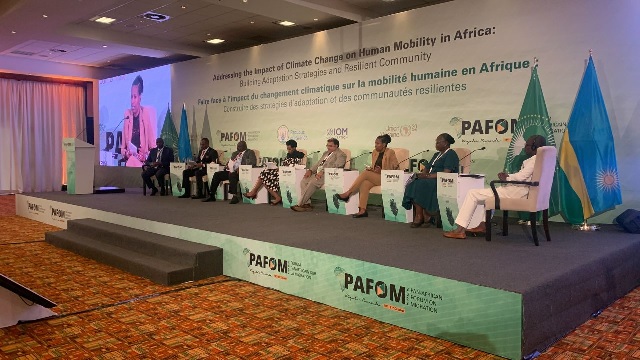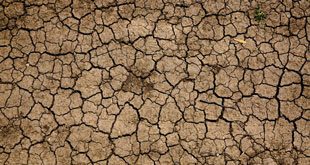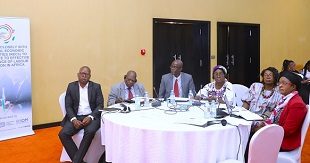
Kigali, Rwanda | Xinhua | Climate change is one of the main causes of migration and forced displacement in Africa, officials said Tuesday as the Pan African Forum on Migration began in Kigali, Rwanda’s capital, to discuss how to tackle the issue.
The two-day event convened more than 200 delegates from African Union countries held under the theme; “Addressing the Impact of Climate Change on Human Mobility in Africa — Building Adaptation Strategies and Resilient Communities.”
“Climate change is emerging as one of the key drivers of migration in Africa. We continue to witness harsh climate conditions, including increase in temperatures, drought, and floods, in many parts of the continent which has led to destruction of properties and displacement of people,” said Angela Martins, the head of the Culture Division of the Social Affairs Department at the African Union during the opening of the meeting. “We need to identify critical areas that can form a foundation for our national, regional and continental interventions on climate-induced migration.”
The promotion of the safety and dignity of people on the move is a major strategy in addressing climate change migration, said the International Federation of Red Cross and Red Crescent Societies (IFRC) Regional Director for Africa Alasan Senghore.
Around the world, 3.6 billion people live in areas that are vulnerable to climate change, according to the IFRC.
“In Africa, climate and weather-related disasters have led to millions of people being displaced from their communities. The impact of climate change is undermining adaptation measures that have been taken by the states,” Senghore said.
Clementine Mukeka, permanent secretary of the Rwandan Ministry of Foreign Affairs, called for an urgent need to take risk-reduction measures to help communities become more resilient to climate shocks.
Strengthening community resilience requires taking into account climate hazards and local topographic conditions simultaneously, she said.
Climate change, environmental degradation and disasters are profoundly reshaping contemporary human mobility worldwide, said Aissata Kane, senior regional advisor for Sub-Saharan Africa of the International Organization for Migration, a UN agency.
Climate change could drive up to 131 million Africans to migrate within their own countries by 2050, according to the UN agency.
 The Independent Uganda: You get the Truth we Pay the Price
The Independent Uganda: You get the Truth we Pay the Price


